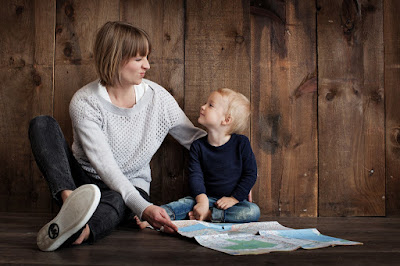For the kids’ sake, resist the urge to speak ill of your former partner.
Splitting up? No matter what twists and turns highlight your divorce or breakup saga, one truth emerges: The same problems that ultimately killed your relationship will probably continue.Of course, breakups are infinitely more complicated when kids are involved. Essentially, there’s no “forever breakup,” because – ideally – you’ll always share responsibility for your kids. And while celebrities flout their no-conflict co-parenting arrangements, the rest of us grapple with nasty disputes over schedules, finances and life changes no one anticipated. Think about it. If you and the other parent had been able to negotiate, compromise and communicate about tough issues, it’s fairly certain you’d still be together.
Parenting is the toughest job around, and post breakup, both parents are in a difficult spot. You’re either trying to do the best for your kids cooperatively with someone you no longer want to share your life with. Or your former partner – the other parent – only sporadically accepts or deliberately abandons parental responsibilities.
If the other parent choses the irresponsible low road, you’re left with unexpected and staggering responsibilities. You understandably feel angry and frustrated. But always remember that kids figure out the other parent in their own time and in their own ways. They may not say it directly, but kids know which parent unselfishly loves and protects them and which parent skirts or ignores responsibilities.
Savvy single parents – despite painful breakup drama – recognize that bad-mouthing the other parent is never the right parenting choice. Here’s why:
Change is hard. Every breakup involves change. Your kids struggle with often unwelcome changes, too. Change can mean a new home, a different school or simply getting used to seldom seeing both parents together. Hearing a parent rant about things kids can’t understand or control leaves them feeling helpless and confused.
You’re the role model. We all struggle to manage uncomfortable feelings. If your kids witness you repeatedly venting anger or frustration without regard for their feelings, such experiences won’t be forgotten. Profanity and other careless language are quickly learned when modeled by a parent.
Online counts, too. Online support groups are often helpful. Counting on the privacy of such groups, however, may not be a wise choice. Anyone with sufficient motivation can obtain online information. Think about your own circumstances and possible consequences before you chime in. Finding a well-qualified therapist, keeping a journal or joining an in-person support group may prove better options.
You must heed the facts of life. All kids eventually realize they’re the biological half of the other parent. If one or both parents have been labeled a liar, cheat or something equally horrid, the damage to your kids’ sense of control can be significant.
Kids are not confidants. Sometimes single parents defend “talking truth” about the other parent because they fear their kids will somehow never make sense of what happened in their lives. So, they feel somehow justified in giving their kids a play-by-play report of what the other parent did or didn’t do. Such parental oversharing burdens your kids. And it doesn’t improve the situation or make you feel better. If you’re feeling overwhelmed, seek out the adult emotional support you need and deserve.
Source: http://health.usnews.com/wellness/for-parents/articles/2017-02-20/5-reasons-not-to-bad-mouth-the-other-parent














